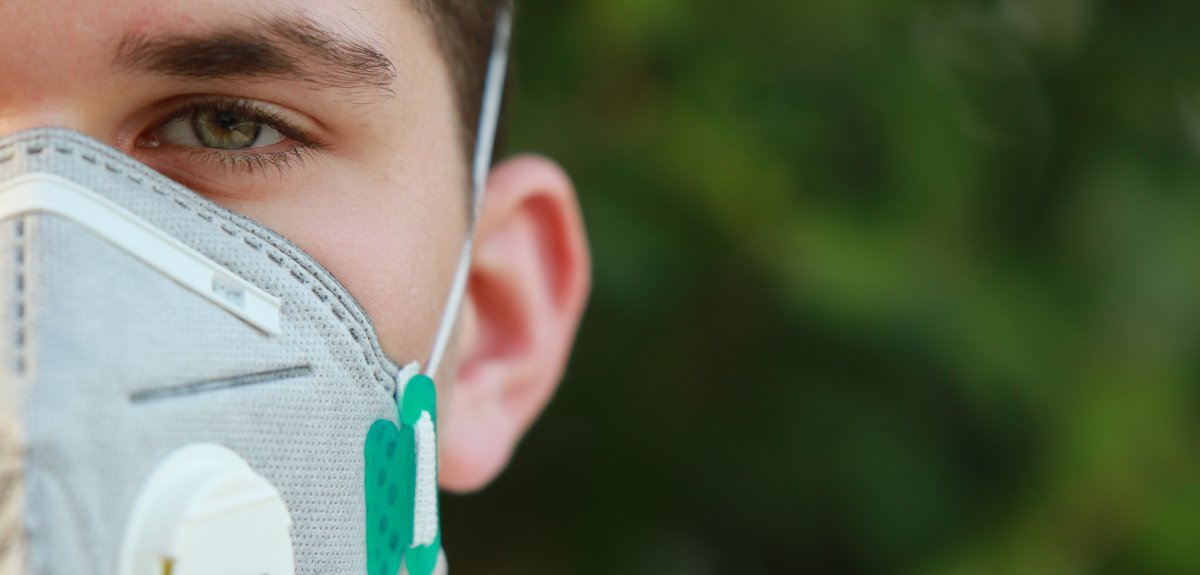“Liberty means responsibility. That is why most men dread it. – George Bernard Shaw
In an attempt to stifle the spread of COVID-19, municipalities have begun to take the lead in Alberta by making masks mandatory in certain public spaces. However, the decision was not arrived at without opposition. For example, in the week leading up to the City of Calgary’s vote, a group called March to Unmask protested such laws, carrying signs reading: “End the Tyranny” and “I Will Not Wear Your Fear”. They argued that such laws infringe on their civil liberties.
In times of crisis, the balance between protecting individuals’ Charter rights and government regulation remains a fine, sometimes even blurred, line. Orders issued by the Alberta government imposing rules on social distancing and self-isolation have already arguably restrained peoples’ freedom of assembly. Yet such limits prescribed by the government are permissible in Canada under the Charter of Rights and Freedoms, so long as the limits are demonstrably justified in a free and democratic society. Just as the law provides checks and balances to prevent the spread of diseases such as COVID-19, the law also attempts to curb the spread of unchecked power.

Public health emergencies
In Alberta, the government has delegated their power during public health emergencies to Alberta Health Services under the Public Health Act. Under Section 52.2(1) of the Act, AHS may order a local state of public health emergency once satisfied that one exists and that the emergency requires prompt action or special regulations to protect the public. Under the Act, a public health emergency is defined to include a pandemic disease that poses a significant risk to the public health. Once AHS is satisfied that such a risk exists, Alberta’s Chief Medical Officer, Deputy Chief Medical Officer and any other physician appointed by the Minister of Health, are provided with a broad and wide-range of legal powers to suppress the risk.
During a public health emergency, Section 29(2) of the Act permits a medical officer of health to take whatever steps are considered necessary to suppress the disease, prevent its spread, remove the source of infection and protect those not already exposed. While the Act does not specifically detail the scope of these steps, medical officers can issue orders to prohibit citizens from attending school, engaging in their occupation, or having contact with others.
Section 29 (2.1), an even broader provision under the Act, enables medical officers of health to take whatever steps that are, in their opinion, necessary to lessen the impact of the public health emergency. Over the course of the pandemic, Alberta’s Chief Medical Officer, Dr. Deena Hinshaw, has cited this section as the authority in various chief medical officer of health orders about self-isolation and social distancing requirements; restrictions on public access to buildings, schools and places of worship; and conditions on long-term care and health facilities.
At the forefront of the government’s power, Section 52.1(2) of the Act enables a minister to suspend or modify the application or operation of statutes without any consultation if satisfied that doing so is in the public interest. Further amendments to the Public Health Act passed on June 26, 2020, extend the minister’s powers under this section even after the public health emergency has ended.
Mandatory masks under the Act
Given the broad powers afforded to the chief medical officer under Section 29(2.1), the province could enforce mandatory masking in public if the pandemic continues. While some may see such steps as an incremental approach toward tyranny, Canada’s Charter would likely permit such enforcement so long as the law was rational and the infringement on civil liberties was minimal.
Scientific evidence continues to mount proving that wearing a mask is an effective way of preventing a carrier from spreading the disease rather than from merely contracting it. Therefore, the importance in wearing a mask is not merely to protect oneself but to protect others, specifically the most vulnerable members of society. As such, any order under the Act that mandates masks would likely meet the requirements under the Charter.
Things move very quickly in the world of COVID-19, but as of the date of publication, the provincial government/medical officer of health had not invoked the power under Section 29(2.1) to mandate the use of masks in public places. Instead, they have chosen to make “strong recommendations” and downloaded responsibility for actually regulating the use to municipalities, which has resulted in some of them passing bylaws relating to mask use.
Given the responsibility citizens now face in protecting others from contracting COVID-19, the public interest in wearing a mask would likely outweigh any individual’s infringed liberty in not wanting to wear a mask, bearing in mind certain medical exceptions. Moreover, given the legislated responsibility provinces have in preventing the spread of COVID-19, any enactment surrounding mandatory mask wearing would be given deference by the courts.
Despite the Orwellian worries some have, the government and citizens have a responsibility to protect the most vulnerable in society. As such, preventing the spread of COVID-19 by passing a law enforcing masks in public would appear to align with the Charter and be justified in a free and democratic society.
Editor’s note: The views, perspectives and opinions in this article are solely the author’s and do not necessarily represent those of the AMA.
Banner image credit: Cromaconceptovisual, Pixabay.com

